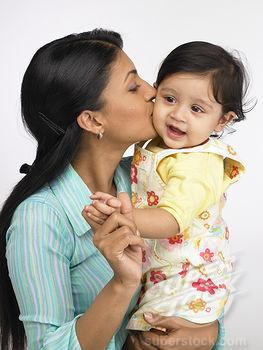
Why is motherhood the only option?
A few weeks ago I was talking to a friend who is going to publish a novel next year. She is exuberant to have become a novelist and was excitedly telling me about the characters in her book. My heart swelled with pride when she told me that she plans to write a second novel, too, I remembered my own dreams of becoming a writer and my own abandoned manuscript. I asked her when she would write her second novel and she told me that she would do so during her first maternity leave, which left me befuddled. Am I the only aspiring writer who is still so torn about her life path? I might regret never becoming a mother, but if I turn my back on motherhood in favor of writing, will the people in my life turn their backs on me and fail to respect me?
This friend wasn’t the first woman to make me to think about whether or not becoming a mother is a responsibility every woman must fulfill. If you’re an Indian woman like me, you’re raised to belief that there is a special place in hell for you if you wash your hands of that duty. I certainly don’t judge my friend for attempting to take on a career and motherhood, but I have to wonder: is she planning this course based on a choice or a compulsion?
For most Indian women, motherhood is a duty that lays the seeds for a future, and there is no escape from it. That is why in olden times women weren’t educated and were only taught domestic labor skills. While women are all still expected to be domestic goddesses by our families and society at large – it is a necessary evil — we are able to have careers, but those are seen as superfluous choices. Women can’t challenge men at work, because men have no alternative options but to be very successful at their careers
Even today, many families want their daughters to follow career paths that have flexible working hours and are considered “feminine” (like teaching or nursing). During my church’s youth group meetings, many young girls voice their opinions against these career choices, but I’ve watched many succumb to the pressure and settle for much less than they want and deserve. I don’t understand why parents want so little for their daughters. Why should a daughter only be adept at making babies and tending to the needs of her family? No wonder even today many families look for a ‘homely’ daughter-in-law who without fail shall live up to all her domestic responsibilities, while her own ambitions become a scapegoat at the altar of ‘adjustment’.
What if I don’t want to be a mother and let my career ambitions give my life a meaningful direction? Many Indians believe that marriage should culminate in motherhood without fail. Therefore a womb is a curse that doesn’t allow a woman to make the choice to earn her own bread and butter.
While the feminist movement in the West has accomplished so much in terms of womens’ reproductive rights, the Indian feminist movement is still ignorant of one of the basic rights that a woman must have in order to be at par with a man: the rights over her body.
While many Indian feminists I have spoken to still support these traditional ideas about motherhood, I had a strong example of the opposite in my own mom: she decided to continue working even after motherhood when my dad voluntarily became the ‘stay at home parent’ in the absence of a nanny. But how many men make that choice to hang their boots for a while? And expecting to find a partner like my dad to walk into my life would be like counting on the sun to rise from the west!
Marriage shouldn’t always have to mean motherhood for women. I was a fool to always think that most people around me got married to seek companionship and togetherness. In reality in societies like mine, marriage is the life long license for unlimited sex and adding up to the brood. Marriage and motherhood happen to be the two choices that give an Indian woman her rights in a society: they are necessary for women to be respected at all. As long as women can’t make decisions about their wombs and health, true gender equality shall stay a fable in this part of the planet.
What if Indian streets become a heaven for us and more and more of us choose careers? What if the most important decisions in a woman’s life weren’t left at the behest of a husband or a mother-in-law or a school of thought that makes this choice a responsibility? If being a radical feminist means that I must take a stance against marriage so that I won’t be forced to breed, so be it! Feminism after all is the ideology seeking to establish equal opportunities for women. For me equality is being equal to the man in everything he has done and continues to do, be that a career, money managing or even changing the light bulbs — not just domesticating my ambitions and pretending to feel blissful about it! I am daring to protest the three M’s that Indian society dictates women need: Men, Marriage and Motherhood.

